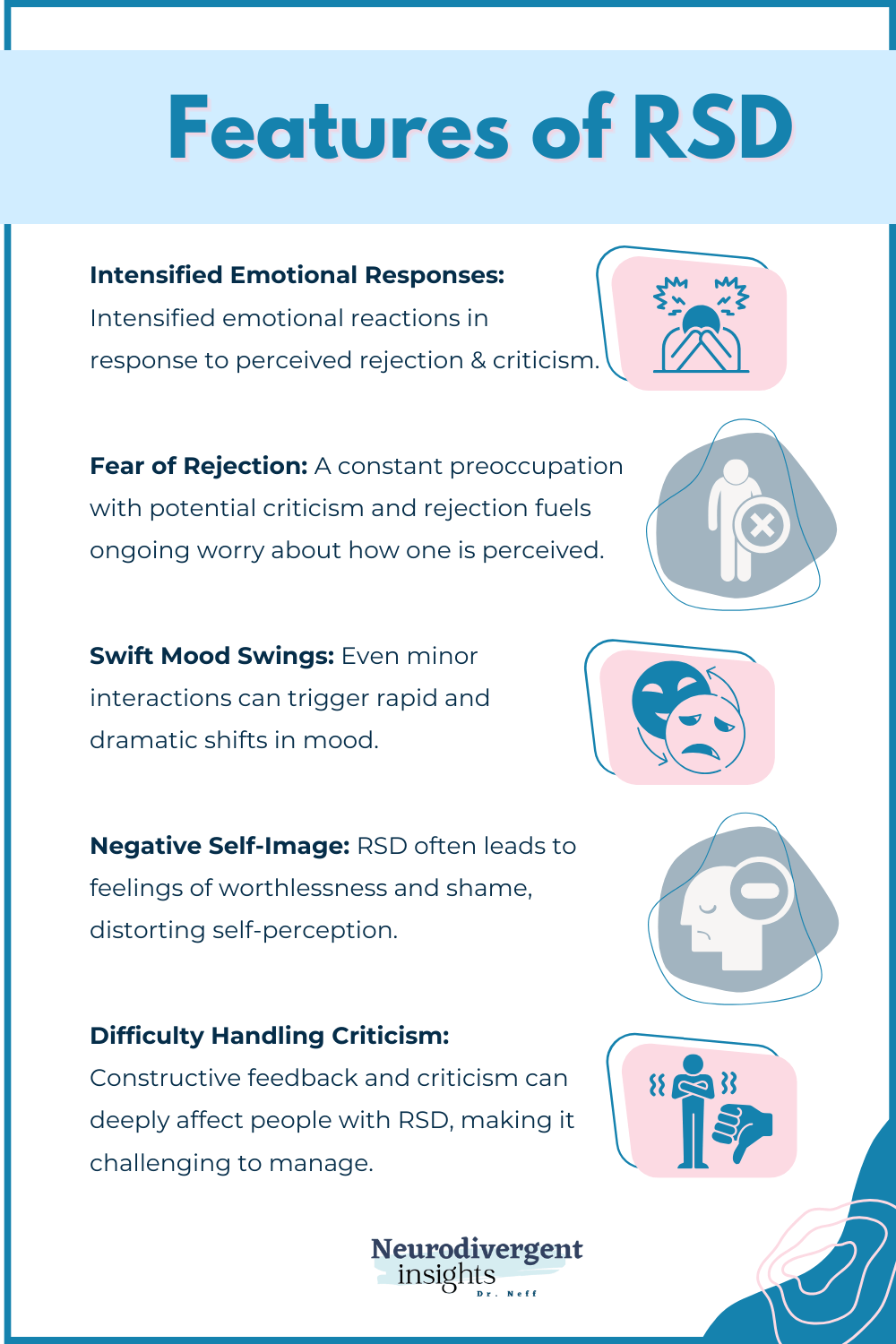Navigating Emotional Sensitivity: How Rejection Sensitive Dysphoria Affects Teens with ADHD and How to Support Them

Understanding Rejection Sensitive Dysphoria in Teens with ADHD
Rejection Sensitive Dysphoria (RSD) is a term used to describe intense emotional pain and sensitivity related to perceived or actual rejection, criticism, or failure. For teens with ADHD, RSD can significantly impact their emotional well-being, social interactions, and overall functioning. Here’s a closer look at what RSD is, how it relates to ADHD, and ways to support teens dealing with this challenging issue.
What is Rejection Sensitive Dysphoria?
Rejection Sensitive Dysphoria refers to an extreme emotional response to situations where an individual perceives rejection or criticism. This can include:
Heightened Sensitivity: An intense emotional reaction to perceived slights, disapproval, or failure.
Emotional Pain: Feelings of worthlessness or deep sadness when faced with rejection or criticism.
Overreaction: Responses to perceived rejection may be disproportionate to the actual situation.
RSD is not an official diagnosis in the Diagnostic and Statistical Manual of Mental Disorders (DSM-5), but it is widely recognized as a significant emotional experience for many people with ADHD.
How RSD Relates to ADHD
1. Neurological Factors:
Emotional Regulation: ADHD often involves difficulties with emotional regulation, making individuals more susceptible to intense emotional reactions. The brain's executive functioning, which includes managing emotions and responses, can be impacted by ADHD, leading to heightened sensitivity to rejection.
Neurotransmitter Imbalance: ADHD is associated with imbalances in neurotransmitters like dopamine and norepinephrine, which can influence mood and emotional responses. This imbalance may exacerbate feelings of rejection.
2. Social and Academic Challenges:
Social Interactions: Teens with ADHD may struggle with social cues and maintaining relationships due to impulsivity or inattentiveness. Past experiences of social rejection or failure can lead to heightened sensitivity and fear of further rejection.
Academic Pressures: ADHD can affect academic performance, and repeated experiences of criticism or perceived failure in school can contribute to RSD. The pressure to meet expectations and fear of failing can heighten the emotional impact of any perceived criticism.
3. Self-Esteem and Self-Perception:
Negative Self-View: Teens with ADHD may develop a negative self-image due to their struggles and perceived failures. This negative self-view can amplify their sensitivity to rejection, as they may already feel vulnerable and self-critical.
Supporting Teens with RSD and ADHD
1. Validate Their Feelings:
Empathy and Understanding: Acknowledge your teen’s feelings of rejection and criticism without judgment. Validating their emotions can help them feel heard and supported.
Reframe Situations: Help your teen reframe their perception of rejection or criticism. Discuss alternative explanations and encourage a more balanced view of their experiences.
2. Develop Coping Strategies:
Emotional Regulation Techniques: Teach strategies such as deep breathing, mindfulness, or grounding exercises to help your teen manage intense emotional reactions.
Positive Self-Talk: Encourage your teen to use positive self-talk and affirmations to counteract negative thoughts and boost self-esteem.
3. Foster a Supportive Environment:
Encouragement and Praise: Provide positive reinforcement and celebrate your teen’s efforts and successes. This can help build resilience and counteract the impact of rejection.
Open Communication: Create an open line of communication where your teen feels safe to express their feelings and concerns. Regular check-ins can help you understand their emotional state and offer support.
4. Seek Professional Help:
Therapy: Cognitive Behavioral Therapy (CBT) can be particularly effective for managing RSD. Therapists can help teens develop coping strategies, challenge negative thought patterns, and build emotional resilience.
Counseling: Individual or group counseling can provide a space for teens to discuss their experiences with others who may have similar struggles, reducing feelings of isolation.
Conclusion
Rejection Sensitive Dysphoria can significantly impact teens with ADHD, exacerbating emotional challenges and affecting their social and academic experiences. By understanding RSD and its connection to ADHD, you can better support your teen through empathy, coping strategies, and professional help. With the right approach, teens with ADHD and RSD can learn to manage their emotional responses and build resilience in the face of rejection and criticism.

SHARE THIS POST:

Bethany Lang
MS NCC NCSC LPC
At Creative Connections, my main goal is to ensure you feel safe and supported while you explore who you are and who you want to become. I want to help you find your strengths and face challenges with confidence.
Whether you're dealing with school stress, friendship issues, or just trying to find your place in the world, I'm here to help you through it.
At Creative Connections, I help young adults feel safe and supported as you discover your strengths and face challenges. Book your free consultation.




